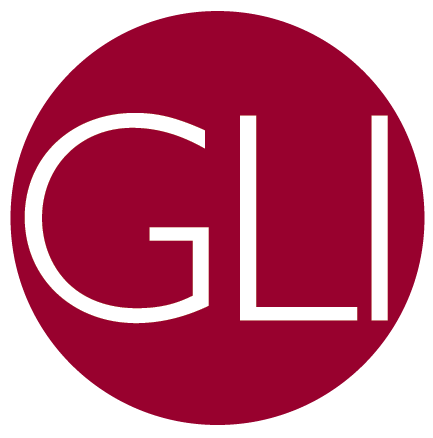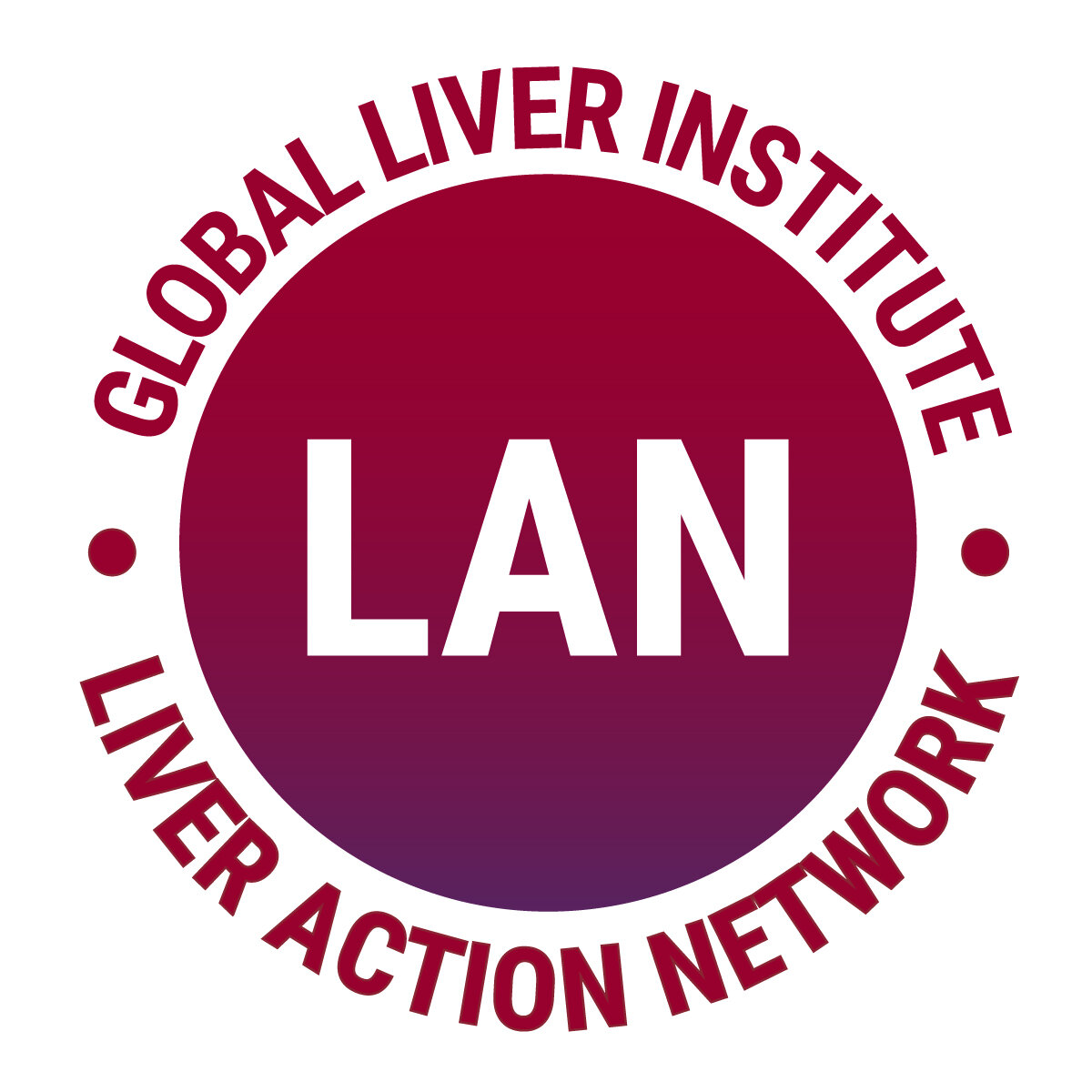

POLICY PERSPECTIVE
Liver diseases affect a wide range of people spanning a plethora of ages, genders, socio-economic statuses, and ethnicities. To ensure this diverse population is represented, it is crucial for these patients and family members to have the opportunity to become advocates for themselves and others. Becoming an advocate provides a person the opportunity to stand on a platform and speak to a larger audience, which can in turn spark change for millions experiencing the same issues.
With this in mind, as a patient advocacy organization, Global Liver Institute’s (GLI) has always had two primary goals. First, to ensure the patient voice is represented and heard. By being central, patients can best explain their lived experiences, which can in turn, move the needle on health issues improving the lives of all impacted by liver disease. Second, for patients to be most effective in actual field shifting decisions, GLI must prioritize preparing patients and family members to be strong advocates for themselves and for others impacted by liver disease. Asking to be heard can only go so far, if you are unable to effectively convey your message.
It is of utmost importance that advocates must not only be given a proper representation in decision making, but they also must understand how to best use their experiences to effectively shift the conversation on liver health. Whether it be about raising awareness for a specific liver disease that affects a specific population, or advocating for a proposed bill about to be passed it is crucial that an advocate knows what they stand for and what changes they intend to influence. Connected to this point it is also crucial for any liver health advocate to understand themselves and the progression of their disease state. This is because when an advocate can tell their personal story paired with a clear understanding of their disease state effectively, they can best educate the widest range of people.
This is why, GLI prioritizes not only elevating the patient voice, but also training future liver health advocates at the annual Advanced Advocacy Academy (A3). This year’s A3 is taking place September 21 – 23. Since 2017, A3 has connected liver patients, caregivers, and family members with the information, skills, and opportunities they need to effectively advocate for liver health.
Through our A3 and other initiatives like the Liver Action Network (LAN), at GLI we hope to prepare advocates so that when a seat at the table is offered, they are not only prepared to take that seat but they are also ready to initiate change from that more powerful role.

Donna R. Cryer, JD
President & CEO
Global Liver Institute

OPEN ADVOCACY OPPORTUNITIES
Patients Impacted by NASH EL PFDD Meeting Survey
All people who currently have or previously had nonalcoholic steatohepatitis (NASH), or their caregiver, are invited by Global Liver Institute and the Liver Action Network to participate in an important survey. This survey acts as the critical backdrop to the Externally Led Patient Focused Drug Development (PFDD) Meeting Global Liver Institute is currently planning for November 4th.
This survey is designed to collect anonymous information about your priorities and preferences for addressing NASH including issues centered around diagnosis, clinical trial access, and available treatment options. Data from this survey will be used by Global Liver Institute, a 501(c)3 patient advocacy and support organization, for research in our mission to help develop potential treatments for NASH. This information will also be shared with the U.S. Food and Drug Administration, the Liver Action Network, and a variety of other stakeholders within the medical community to help them understand your thoughts and feelings about potential treatments for NASH.
Participation in this survey is optional and should take about 20 minutes. Responses will be kept confidential. Any data collected in this survey will only be shared in an anonymized fashion and the survey organizers will not contact anyone about their responses.
The survey will be available until noon EST on Friday, October 29. If you have any questions, please let us know by reaching out to Andrew Scott, ascott@globalliver.org.Take the Survey

GLI POLICY DEVELOPMENTS
GLI and the Liver Action Network (LAN) Submit Comments on the NIDDK Strategic Plan
Overall we thanked the agency for its transparency and inclusion of many of our previously submitted recommendations to the 2020 draft. However, while the report acknowledges some of these points broadly, the NIDDK must think more precisely of liver health on the same level as some of the other therapeutic areas within the agency’s portfolio.
This is why, we urged the NIDDK to consider two vital recommendations:
The NIDDK must elevate the Liver Disease Research Branch to the level of an Office or Division to better meet the cross-divisional, interconnected needs of a rapidly growing patient population and to better coordinate liver health-related research within NIDDK and NIH.
The NIDDK must maintain a continuity of investment in ongoing important liver disease research programs while also consistently dedicating an appropriate percentage of new annual funds to transformative liver health research initiatives.
USPSTF Request to Include NAFLD and NASH
On April 12th GLI led a joint letter with many from the liver advocacy community to USPSTF asking for the inclusion of NAFLD/NASH within the recommendation statement and urging the task force to utilize people-first language (attached).
Last month, USPSTF published the final recommendation statement and evidence summary (attached). With regards to our two requests, and when specifically looking at the recommendation statement, USPSTF has thankfully taken our recommendation and adjusted the statement to include people-first-language, and removing any sort of classification of patients as “diabetic” or “obese.”
Secondly, the USPSTF has followed through on our other recommendation and included a highlighting of the risks of NAFLD, NASH, and diabetes. “[Diabetes] is also associated with increased risks of cardiovascular disease (CVD), nonalcoholic fatty liver disease, and nonalcoholic steatohepatitis and was estimated to be the seventh leading cause of death in the US in 2017. Screening asymptomatic adults for prediabetes and type 2 diabetes may allow earlier detection, diagnosis, and treatment, with the ultimate goal of improving health outcomes.”
Advocacy Letters
GLI Signs onto Joint Letter Urging Congress to Lower Rx Out-Of-Pocket Costs in the Budget Package
Updates from the Liver Action Network

Collective community liver health advocacy can ensure that liver health is an integral part of public health from nutrition, activity, prevention, control of management of risk factors, to education, support, optimal clinical pathways, and policy for children, adults, and seniors.
The Liver Action Network (LAN) is an affiliation model across liver health conditions and geographic communities with the goal of collectively working to elevate liver health policy and advocacy. This new section in the Liver Health Policy Update will allow for a consistent opportunity for LAN member organizations to highlight some of the initiatives they are leading and working on.
Community Liver Alliance Urges Congress in Pennsylvania to Act on Harmful Medicare Lab Cuts
This past month, Community Liver Alliance CEO, Suzanna Masartis, urged Congress to take action against harmful Medicare lab cuts facing seniors in Pennsylvania. She stressed that older adults were made a promise that their Medicare benefits would be there; it’s time policymakers make sure that promise is kept now and in the future.
Liver Wellness Foundation Hosted a Cirrhosis Webinar
The webinar focused on Cirrhosis of the Liver took place on August 24, 2021. Expert panelists: Vinay Sundram, Mina Rakoski, Jeffrey Kahn, and Sammy Saab provided updated information on cirrhosis of the liver, its implications, causes, and real life real life consequences.
GLOBAL NEWS
Research Shows: Only 26% of Areas in the UK have an Effective Pathway in Place for Early Liver Disease Detection
New research from a survey by the British Liver Trust was published August 4, 2021 showing only 26% of areas in the United Kingdom (UK) have an effective pathway in place for the early detection of liver disease. Three quarters of people in the UK are currently diagnosed when it is too late for effective intervention or treatment, and one in four people that are diagnosed late in the hospital die within a couple of months. This is a stark contrast to patients with diabetes and heart disease who receive standard care often.
U.S. FEDERAL NEWS
FDA Gives Clearance for the Siemens’ Blood Test for Fatty Liver Disease
The Food and Drug Administration (FDA) has granted clearance for practitioners to use the Siemens blood test on patients with liver disease. This blood test allows a more accurate alternative to test if patients have Nonalcoholic Fatty Liver Disease (NAFLD) or Nonalcoholic Steatohepatitis (NASH), and is less invasive than a biopsy. The test seeks out signals of disease across the entire organ which is crucial because some diseases such as NASH and NAFLD do not spread evenly across the organ and can be missed if a non-affected part of the liver is biopsied.
Biden Administration Announces Six-Point COVID-10 Action Plan
President Biden announced a six-point COVID-19 action plan this week entitled “Path out of the Pandemic” to respond to the resurgence of the virus. The plan will rely on previously successful public health interventions and additional vaccine requirements for federal workers and contractors, employers, and health care personnel. The plan also features safe school elements, more aggressive self and at-home testing, masking requirements, and ongoing economic relief.
U.S. House of Representatives and Senate Continue Work on Budget
Much of the focus for the U.S. House of Representatives and Senate remain focused on the budget reconciliation legislation. In the House, several committees marked up bills this week, and others provided outlines of the packages they intend to move forward in the next several days. However, things have slowed down in the Senate, and with 20 days before the end of the fiscal year, clearly there will be the need for a stop-gap measure to fund government agencies into the fall while the bills are considered by the Senate and negotiated with House bills.
U.S. NGO NEWS
Clinical Discussions on Diet-Associated NAFLD and COVID-19 Mortality Risk Among PPI Users
The August issue of The American Journal of Gastroenterology was released and included clinical discussions of diet-associated NAFLD risk and increased risk of mortality from COVID-19 among Proton pump inhibitors (PPI) users.The issue also featured clinical research and reviews on Irritable bowel syndrome (IBS), gender barriers for Colorectal Cancer Screening screening, hepatitis C, eosinophilic esophagitis, and more. Study authors found that, even in populations with low consumption rates of red meat, red meat and organ meat consumption is associated with increased risk of developing nonalcoholic fatty liver disease (NAFLD). In addition to calorie restriction and weight loss, dietary composition continues to be a key consideration in preventing NAFLD, and research continues to be done.
UC Davis’ END B Program Improves Hepatitis B Screenings Amidst COVID-19
Telehealth and technological improvements have helped University of California Davis’ END B program continue its Hepatitis B (HBV) screenings during the pandemic. Eric Chak, The Director of the program and UC Davis Health hepatologist stated that HBV disproportionately affects Asian Americans. Thus, UC Davis Researchers teamed up with The Health and Life Organization (HALO) to close that gap. This was done by using electronic health records proactively during the pandemic and using bilingual outreach. As a result, screenings for HBV were increased greatly for minority populations throughout the covid-19 pandemic and prevented it from losing ground during the health crisis.
NAMES TO KNOW
Dr. Hiroji Shinkawa
Dr. Shinkawa was the lead author of a recent study published in the Journal of Liver Cancer. Dr. Shinkawa and his team work at the research department of Hepato-Biliary-Pancreatic Surgery at Osaka City University Grad School of Medicine. Their study focused on investigating if poorly differentiated tumors of different sizes affect the rate of early prognosis and recurrence of hepatocellular carcinoma (HCC). Dr. Shinkawa has stated that he and his team hope to improve medical intervention for patients with HCC through their research.

GRANT OPPORTUNITIES
Early-Stage Preclinical Validation of Therapeutic Leads for Diseases of Interest to the NIDDK (Clinical Trial Not Allowed). Funding available from the NIH. Application Deadline: 11/12/2021
Mechanisms of Disparities in Chronic Liver Diseases and Cancer (R21 – Clinical Trial Not Allowed) Application Deadline: 04/01/2022
